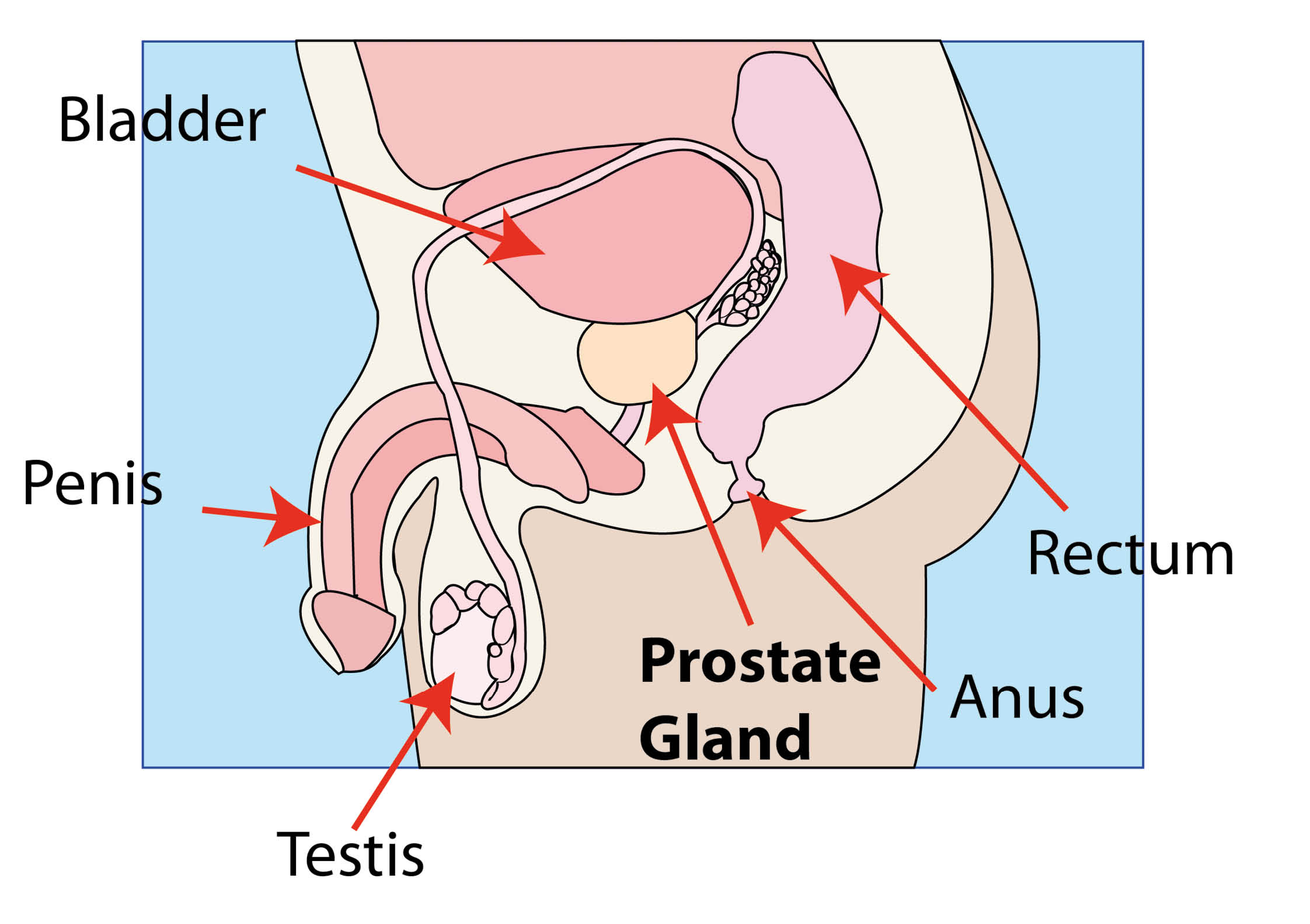Having a transrectal ultrasound scan and prostate biopsy
Information for patients from the Urology Department
This leaflet tells you about the above procedure. It explains what is involved and the possible risks. It is not meant to replace informed discussion between you and your doctor but can act as a starting point for such a discussion. Please feel free to discuss the examination with your referring doctor or the person carrying out your examination.
Why do I need a transrectal ultrasound scan and prostate biopsy?

The prostate is a small gland associated with the male reproductive system, found at the base of the bladder.
It tends to enlarge with age and can obstruct the outflow of urine. Men do not always have symptoms from prostatic disease, but a blood test showing a raised PSA (prostate specific antigen) may point to a hidden problem.
A transrectal ultrasound scan and prostate biopsy will help to determine whether there is any serious disease within your prostate gland causing your abnormal blood test.
Where will my procedure take place?
The procedure will take place in the Outpatients Department at Kent and Canterbury Hospital.
Please note that due to the nature of the examination we are unable to accommodate unaccompanied children within the department.
How do I prepare for a transrectal ultrasound scan and prostate biopsy?
Normally no preparation is needed. However patients taking anticoagulants (blood-thinning treatment such as aspirin, clopidogrel, ticagrelor, prasugrel, rivaroxaban, dabigatran, apixaban, or warfarin) and dipyridamole may be asked to stop taking them before their biopsy. Please contact the urology cancer nurse specialists on 01227 868666 if you are unsure about when to stop taking your anticoagulants.
Please tell the doctor if you are taking anticoagulant medication or are allergic to any antibiotics.
You will be given antibiotics to take one hour before your procedure. If you have not been given antibiotics, please arrive one hour earlier than your appointment so that the nurse can give you them.
What will happen when I arrive at hospital?
On the day of your procedure, please report to the Outpatients reception desk at Kent and Canterbury Hospital.
What will happen during my biopsy?
You will be asked to lie on your left-hand side on a couch, with your knees drawn up.
A ultrasound probe is gently inserted in to your rectum, giving an image of your prostate gland, for an accurate placement of the biopsy. A local anaesthetic is given through the probe to remove some of the sensation.
While scanning your prostate gland, the doctor will take 12 or more biopsies (small samples) from your gland. The biopsy is taken with a spring-loaded biopsy needle. The procedure is not normally painful. You will hear a loud click when each biopsy is taken, and may feel what has been described by patients as discomfort.
How long will it take?
The complete consultation takes about 30 minutes, but the biopsy takes about 15 minutes. After this you will be asked to stay in the department for about 30 minutes, or until you have passed urine.
When will I receive the results of my biopsy?
The biopsies are examined by a pathologist. You will be given a follow-up appointment with the urologist to discuss your results.
Can I drive after my procedure?
You cannot drive for 24 hours after your procedure, or until your pain allows and you can do an emergency stop without any pain.
Please arrange for someone to take you home from hospital after your procedure.
Are there any risks or complications?
You may have small amounts of blood from your rectum and in your urine for 24 to 48 hours after your procedure (sometimes longer); this is normal. If it becomes heavy or continues, see your GP.
Rarely heavy bleeding may happen when you have your biopsy. If this does happen you will be kept in the department until it settles.
Infection is unusual, but it is the most common complication. It usually occurs 24 to 48 hours after your procedure. You will be given antibiotics to take at home as a precaution to address this. Occasionally the infection can be severe enough to need hospital treatment with intravenous (IV) antibiotics.
Despite these risks, your doctor will have come to the conclusion that you should have this examination. Remember that the risks from missing a serious disorder by not having the procedure are considered to be much greater.
Where can I get more information?
If after reading this leaflet you have further questions about your tests or treatment, please speak to the doctors looking after you.
Alternatively you can contact the urology nurse specialists on telephone 01227 868666.
Or you can visit the British Association of Urological Surgeons (BAUS) web site.
References
This leaflet is produced with grateful acknowledgment to the Patient’s Liaison Group of the Royal College of Radiologists and East Kent Radiology Staff.